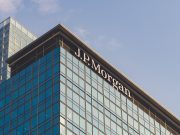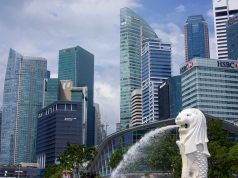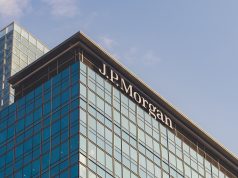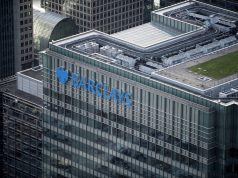Singapore MAS: Consultation on Adjustment Spreads for the Transition of Legacy SOR Contracts in Wholesale Markets
19th May 2022 | Singapore
The central bank of Singapore Monetary Authority of Singapore (MAS) and the Steering Committee for SOR & SIBOR Transition to SORA (SC-STS) have jointly announced an SC-STS consultation on adjustment spreads that will apply to legacy SOR business loans and derivatives. The consultation covers the setting of the MAS Recommended Rate. The MAS Recommended Rate is the fallback rate, in the ISDA 2020 IBOR Fallbacks Protocol, Supplement number 70 to the 2006 ISDA Definitions and the 2021 ISDA Interest Rate Derivatives Definitions, as well as the SC-STS’ recommended fallbacks for bilateral and syndicated business loans, that will apply when Fallback Rate (SOR) is discontinued after 31 December 2024. to provide contractual certainty for SOR contracts that remain outstanding after 31 December 2024, and supplementary guidance to support the on-going transition of legacy SOR contracts in wholesale markets. The consultation paper can be found here .
“ Consultation on Adjustment Spreads for the Transition of Legacy SOR Contracts in Wholesale Markets “
SOR is the Singapore Dollar (SGD) Swap Offer Rate and SIBOR is the Singapore Interbank Offered Rate. Both benchmarks are published by ABS Benchmarks Administration Co Pte Ltd. SORA is the Singapore Overnight Rate Average published by MAS and reflects the volume-weighted average rate of SGD unsecured overnight interbank borrowing transactions in Singapore. SORA is set to replace both SOR and SIBOR as the key interest rate benchmark referenced in SGD financial instruments.
Singapore MAS Consultation:

The conversion of a legacy SOR contract in wholesale markets to a SORA-based contract requires an adjustment spread, which represents the price that a SOR borrower transitioning to SORA would pay over the SORA benchmark rate. The adjustment spreads account for structural differences between SOR and Compounded SORA, such as the credit and term premia absent in SORA. In the past year, wholesale market participants were able to rely on a liquid SOR-SORA basis swap marketThe SOR-SORA basis swap market reflects the market determined pricing to exchange a stream of SOR payments to SORA plus an adjustment spread. to price these adjustment spreads. However, with the bulk of SOR-based derivatives transitioned to SORA, liquidity in the SOR-SORA basis swap market is declining, resulting in difficulties in pricing the adjustment spreads.
MAS has therefore endorsed SC-STS to make and finalise recommendations towards setting the MAS Recommended Rate, including the appropriate calculation methodology for the adjustment spreads to be used. This will apply as a fallback rate for outstanding SOR-based business loans and derivatives that mature after end-2024. Separately, the SC-STS will also provide supplementary guidance on adjustments spreads to apply for interest rate periods before end-2024, to support the industry’s on-going active transition of wholesale SOR contracts.
The SC-STS consults on adjustment spreads for conversion of legacy SOR contracts
The SC-STS issued a consultation paper Consultation on Adjustment Spreads for the Conversion of Legacy SOR Contracts to SORA , setting out the following key recommendations:
- The MAS Recommended Rate should be based on Compounded SORA, given that SORA is now the main interest rate benchmark for SGD financial markets.
- Adjustment spreads within the MAS Recommended Rate should be derived from the historical median spread between SOR and SORA. Such a methodology is transparent, verifiable and readily available, and simple to explain and implement. It also in line with market expectations of the SOR-SORA spreads after end-2024. Together with the linear interpolation outlined in the supplementary guidance, the historical median approach will serve to reduce inequity or unintended value transfer among different participants to the same contract, that may arise from a conversion from SOR to SORA.
- Adjustment spreads for the period before end-2024 should be based on a linear interpolation between a reference spread based on a recent shorter historical median (e.g. 6M) of the SOR-SORA spread and the adjustment spread within the MAS Recommended Rate. To provide certainty in transition outcomes while minimising valuation impact, the SC-STS has proposed flexibility in the application of its recommendations to the active transition of SOR-based derivatives-linked products.
Mr Wee Ee Cheong, Deputy Chairman and CEO of UOB Ltd, ABS Chairman and SC-STS Co-Chair, said, “The SC-STS’ consultation on the approach to set the MAS Recommended Rate will help to facilitate the industry’s final phase in transitioning out of legacy SOR contracts. This will provide more certainty to market participants with SOR contracts maturing after end-2024, while supporting the active transition of legacy SOR contracts in the coming quarters ahead of the discontinuation of SOR in mid-2023. Through this consultation process, we seek to ensure a robust and transparent approach for businesses and the industry”
Mr Leong Sing Chiong, MAS Deputy Managing Director (Markets and Development) and SC-STS Co-Chair, said, “MAS supports the SC-STS’ initiative to commence this consultation well in advance of the discontinuation of contractual fallbacks after end-2024. Setting the MAS Recommended Rate early will help to anchor expectations of transition arrangements and provide a pathway for market participants to continue with their SOR-SORA transition efforts. This will ensure that the momentum to transition to a SORA-centered interest rate regime is maintained.”
The consultation paper can be found here . The SC-STS invites stakeholders to provide feedback on the proposals using the feedback form here . For further queries related to the SC-STS consultation paper, please email ABS Co at [email protected].
About the Monetary Authority of Singapore (MAS)
The Monetary Authority of Singapore (MAS) is Singapore’s central bank and integrated financial regulator. As a central bank, MAS promotes sustained, non-inflationary economic growth through the conduct of monetary policy and close macroeconomic surveillance and analysis. It manages Singapore’s exchange rate, official foreign reserves, and liquidity in the banking sector. As an integrated financial supervisor, MAS fosters a sound financial services sector through its prudential oversight of all financial institutions in Singapore – banks, insurers, capital market intermediaries, financial advisors and financial market infrastructures. It is also responsible for well-functioning financial markets, sound conduct, and investor education. MAS also works with the financial industry to promote Singapore as a dynamic international financial centre. It facilitates the development of infrastructure, adoption of technology, and upgrading of skills in the financial industry.
Association of Banks in Singapore (ABS)
ABS is a non-profit organisation that represents the interests of the banking community in Singapore. In doing so, ABS works closely with the relevant government authorities towards the development of a sound financial system in Singapore. Since its establishment in 1973, ABS has promoted a unifying voice on banking issues. It has brought its members closer together through various guidelines and banking practices as well as the support of projects of mutual benefit to face the challenges of the financial and banking community in Singapore. Today ABS has a membership of 156 local and foreign banks.
ABS Benchmarks Administration Co. Pte Ltd (ABS Co) is an independent locally incorporated company fully owned by the Association of Banks in Singapore. It was established in June 2013 specifically to own and administer the ABS Benchmarks in Singapore – the Singapore Interbank Offered Rate (SIBOR), the Swap Offer Rate (SOR), the Singapore Dollar Spot FX and the Thai Baht Spot FX. ABS Co also administers the Fallback Rate (SOR).
More information on ABS is available at www.abs.org.sg.
Steering Committee for SOR & SIBOR Transition to SORA (SC-STS)
The Committee was established by the Monetary Authority of Singapore (MAS) to oversee the industry-wide interest rate benchmark transition from SOR to SORA in August 2019. The MAS subsequently expanded the Committee’s mandate in December 2020, to include the SIBOR-to-SORA transition as well, and renamed the Committee as the Steering Committee for SOR & SIBOR Transition to SORA . As the transition from SOR and SIBOR involves many industry participants, as well as commercial and retail customers, the SC-STS seeks to ensure adequate stakeholder engagement and a well-managed transition.
The SC-STS is co-chaired by Mr Wee Ee Cheong, Deputy Chairman and CEO of United Overseas Bank Ltd, and ABS Chairman, together with Mr Leong Sing Chiong, MAS Deputy Managing Director (Markets and Development). The Committee is responsible for providing strategic direction on industry proposals to develop new products and markets based on SORA. The Committee will also engage stakeholders to seek feedback and raise awareness on issues related to the transition from SOR and SIBOR to SORA. The Committee comprises senior
Sign Up / Register
Caproasia Users
- Manage $20 million to $3 billion of assets
- Invest $3 million to $300 million
- Advise institutions, billionaires, UHNWs & HNWs
Caproasia Platforms | 11,000 Investors & Advisors
- Caproasia.com
- Caproasia Access
- Caproasia Events
- The Financial Centre | Find Services
- Membership
- Family Office Circle
- Professional Investor Circle
- Investor Relations Network
Monthly Roundtable & Networking
Family Office Programs
The 2025 Investment Day
- March - Hong Kong
- March - Singapore
- July - Hong Kong
- July - Singapore
- Sept- Hong Kong
- Sept - Singapore
- Oct- Hong Kong
- Nov - Singapore
- Visit: The Investment Day | Register: Click here
Caproasia Summits
- The Institutional Investor Summit
- The Investment / Alternatives Summit
- The Private Wealth Summit
- The Family Office Summit
- The CEO & Entrepreneur Summit
- The Capital Markets Summit
- The ESG / Sustainable Investment Summit







































